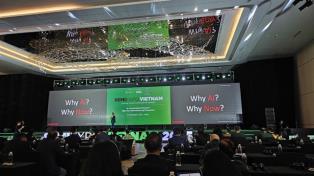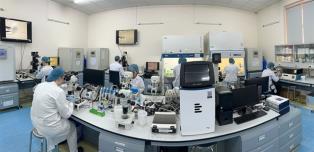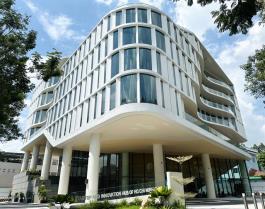More than 150 scientists, experts, lecturers, and postgraduate students from Việt Nam and abroad gathered in HCM City on Wednesday (November 12) for the first International Conference on Explainable Intelligence in Digital Twins (EIDT 2025).
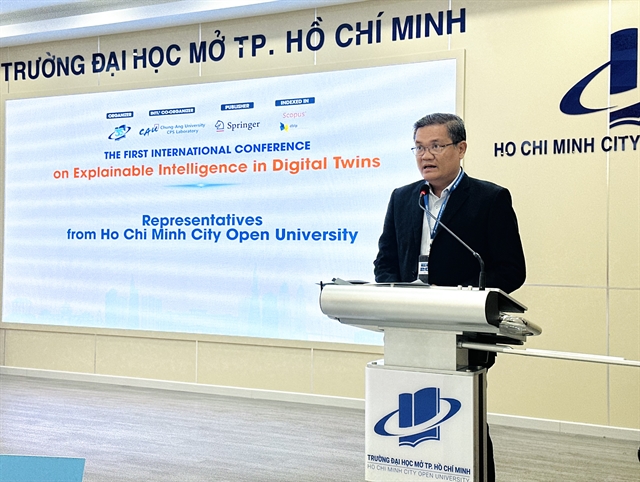
HCM CITY — More than 150 scientists, experts, lecturers, and postgraduate students from Việt Nam and abroad gathered in HCM City on Wednesday for the first International Conference on Explainable Intelligence in Digital Twins (EIDT 2025).
The conference was co-organised by HCM City Open University (HCMCOU) and Korea’s Chung-Ang University, aiming to foster academic exchange in Explainable Artificial Intelligence (XAI), Digital Twin Systems, Computer Vision, and Smart Automation — key fields driving Industry 4.0 and digital transformation.
Speaking at the opening ceremony, HCMCOU Rector Nguyễn Minh Hà said the event marked a significant milestone in the university’s academic journey.
“This inaugural event represents our strong commitment to fostering research, innovation, and international collaboration in Artificial Intelligence (AI) and Digital Transformation,” he said.
Despite being held for the first time, EIDT 2025 has already earned remarkable academic recognition, featuring 38 high-quality research papers from around the world.
The conference provided a timely platform to discuss the latest advances in explainable and trustworthy AI, emphasising transparency, interpretability, and ethical principles.
“It represents the university’s efforts to strengthen global research partnerships and contribute to the worldwide dialogue on human-centered AI and sustainable innovation,” he said.
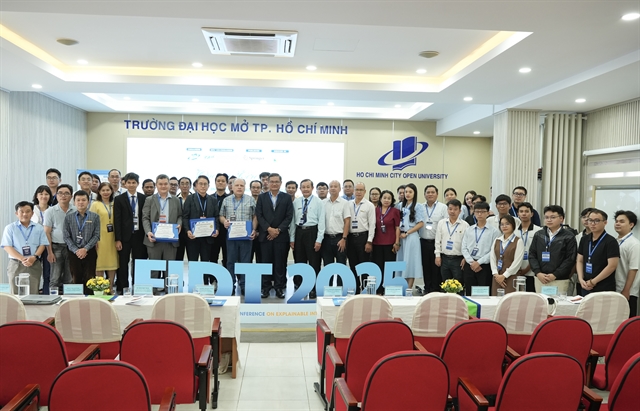
The research papers covered cutting-edge topics such as explainable machine learning models in medical diagnosis and education, few-shot and federated learning, multimodal AI, and digital twin applications in manufacturing, transportation, and healthcare.
Participants also explored the integration of generative AI and large language models in smart service development.
Three keynote speakers delivered plenary talks.
Prof. Fadi Dornaika from the University of the Basque Country in Spain presented “Advancing Medical Image Analysis”, focusing on explainable deep learning methods to enhance diagnostic accuracy and transparency in AI-driven medical systems.
Prof. Byung Seok Shin from Inha University in RoK discussed “Toward Human Digital Twin Using AI Technologies”, introducing multimodal data integration to create predictive digital twin models for personalised healthcare, sports, education, and smart cities.
Assoc. Prof. U-Xuan Tan from the Singapore University of Technology and Design shared “Healthcare Automation Innovation Journey”, showcasing Singapore’s use of AI and robotics in hospital logistics and infection control.
All accepted papers will be published by Springer and indexed in Scopus, underscoring the high academic standards of EIDT 2025.
Founded in 1990, HCM City Open University is a distinguished multidisciplinary institution under the Ministry of Education and Training.
Over 35 years, the university has consistently pursued excellence in teaching, research, and community engagement, contributing to Việt Nam’s scientific and technological progress.
It is ranked among the Top 501–600 universities in the Times Higher Education Asia University Rankings 2025.
HCMCOU’s Faculty of Information Technology (FIT), established in 1990, is one of the university’s earliest and most dynamic faculties.
FIT has trained more than 6,000 full-time graduates and thousands of part-time students, many of whom have become outstanding engineers, researchers, and educators.
It has earned both AUN-QA (2022) and MOET (2024) accreditations, and continues to strengthen ties with academia and industry through the integration of education, research, and innovation. — VNS

